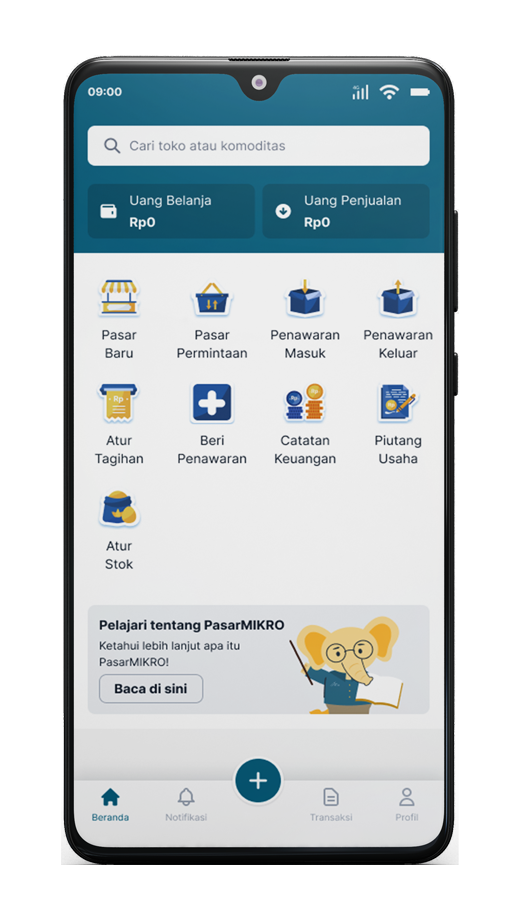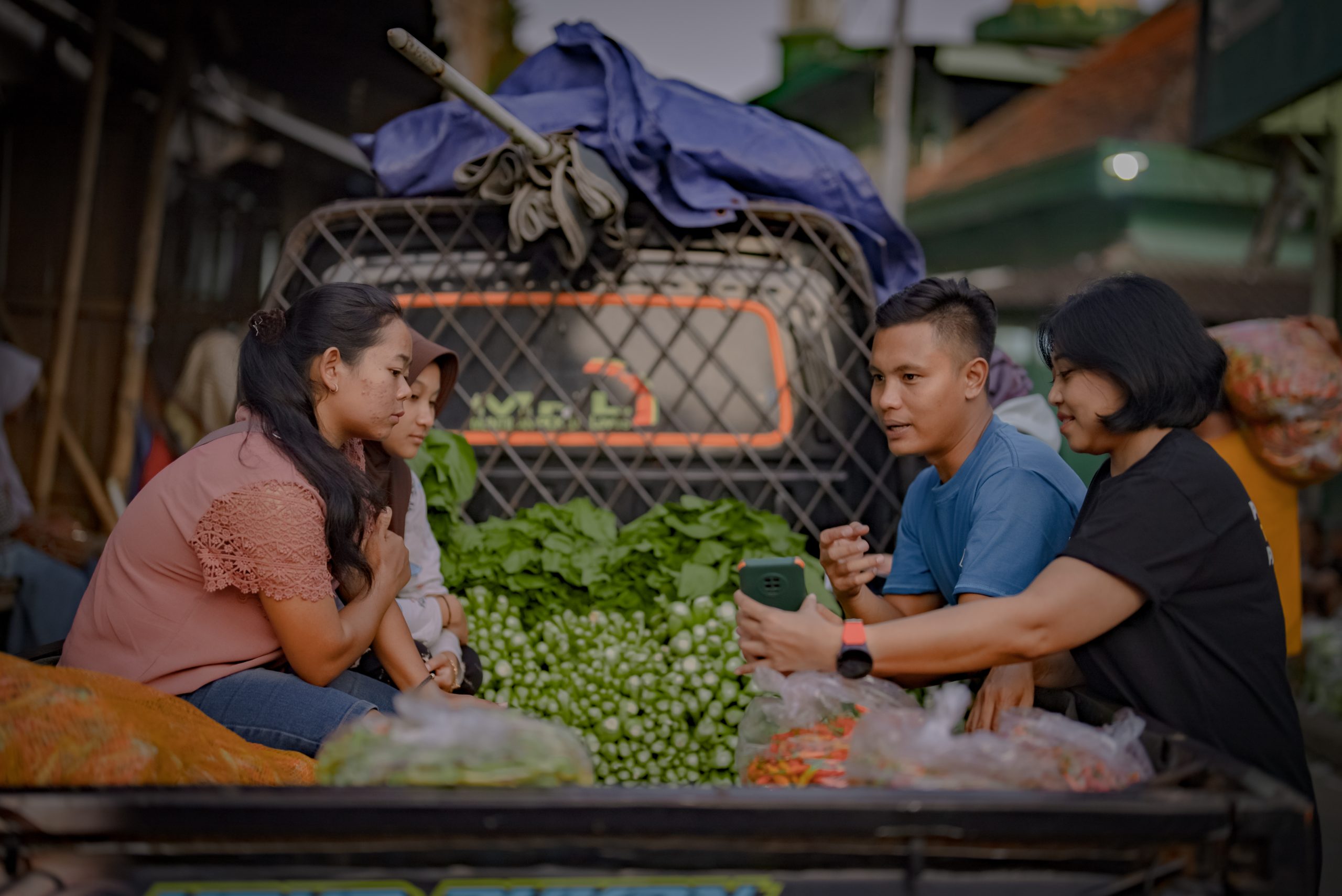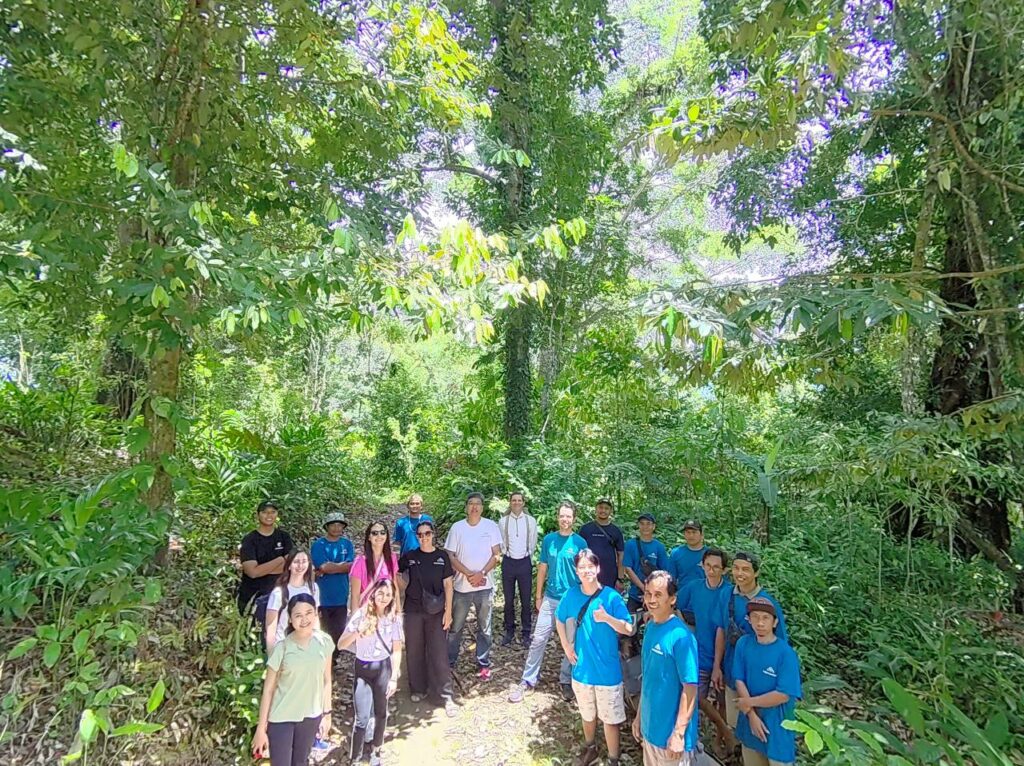
PasarMIKRO is a commodity trading app, designed to empower farmers and suppliers, simplifying transactions and enhancing financial literacy. Recently, we ventured to Bali to deepen our collaboration with Conservana, a local processing company of non-timber forest products from Indonesian conserved forests, helping to facilitate smoother and traceable trade between them and Jembrana farmers. Our primary aim was to assess the farmers’ current level of financial literacy and encourage them to begin keeping financial records for all commodity transactions. With this, we hope to build sustainable financial habits, empowering farmers with the tools they need to make informed plans and strengthen resilience against financial uncertainties.
End of October, I joined PasarMIKRO in Jembrana, a unique agricultural hub on the western side of Bali, rooted in cacao, vanilla, coffee, and durian farming. Established in 1939, this farming community is unique to Bali, centered around traditional agriculture rather than tourism. Farmers grow crops on both private fields and forest land recently permitted for agriculture, which extends their reach to 304 hectares of farmland. This rich agricultural heritage blends tradition with new opportunities as they work to sustain and improve their livelihoods.
While in Jembrana, I stayed with Pak Mangku’s “Kelompok Tani Hutan” (KTH) group in Jalan Akular village. Pak Mangku, or I Made Dwi Sadnyana, is a respected community leader whose commitment to innovation and quality has made his home a gathering point for farmers eager to improve their practices. Alongside his nephew, Leo, who brings experience from Japan’s agricultural sector, they are pioneering new techniques and raising the quality of local crops. Despite facing challenges like limited government support and low crop pricing, their work has drawn farmers from neighboring villages, eager to learn. Together, Pak Mangku and Leo are a driving force, inspiring others to invest in the potential of agriculture.
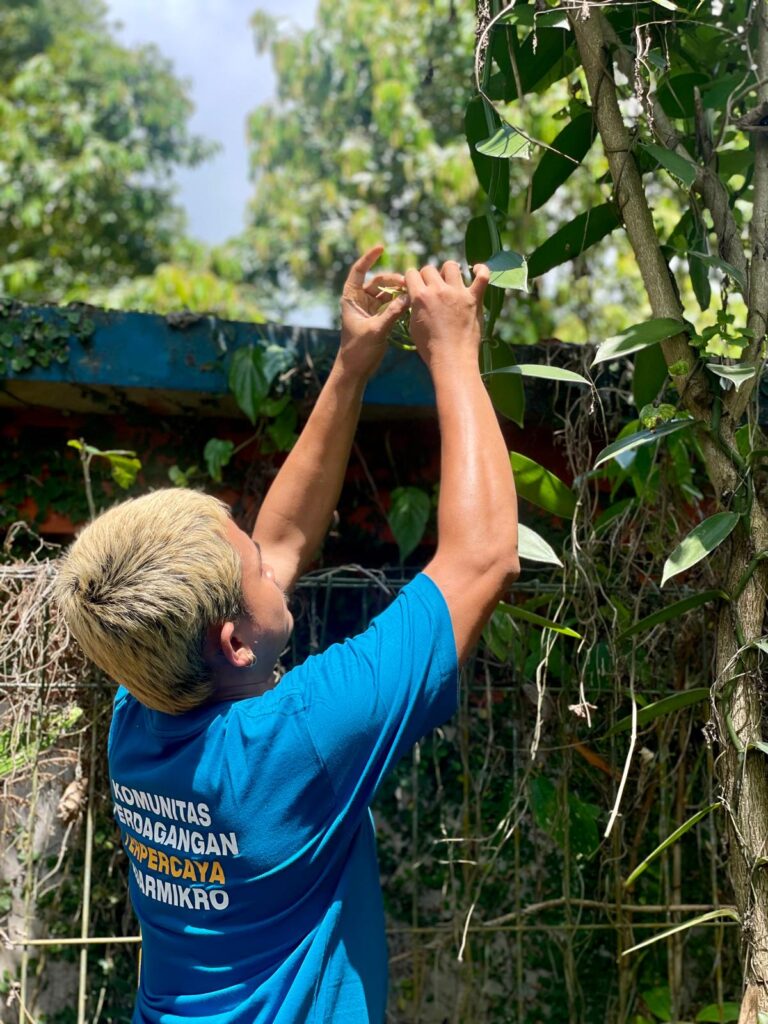
We conducted a financial literacy survey with 70 farmers in Jembrana to better understand their financial habits and challenges. Here’s what we learned:
- Age Distribution: The largest group is between 50-59 years (37.3%), followed by the 40-49 age group (34.3%). Smaller groups are in the 30-39 (11.9%) and over 60 (13.4%) categories, with a very small group in the 20-29 age range (3.0%).
- Experience: 83.6% of respondents have worked over 10 years in their profession or business, with fewer having 1-5 years (9.0%), 5-10 years (6.0%), or less than 1 year (1.5%)50 out of 70 farmers had over a decade of farming experience, indicating a deep-rooted commitment to agriculture within the community.
- Independence: 70.1% of respondents do not use daily labors, while 26.9% employ 1-3 labors, and 3.0% use 4-7 labors
- Gender: Among the surveyed farmers, 71.6% are male.
- Education: The majority of respondents have a high school (38.8%), elementary (29.9%), or middle school (23.9%) education, with fewer holding diplomas (6.0%) or degrees (1.5%).
- Loans: Nearly all farmers had loans from the regional LPD (a local government credit institution), but these funds were often used for personal expenses, such as children’s education, rather than farm investments.
- Digital Literacy : The survey shows a 100% literacy rate in the village, with 80.6% smartphone ownership. About 60% of residents are comfortable using smartphones daily, primarily for communication, entertainment, and learning agricultural skills through online videos. This highlights strong digital engagement, with room to further enhance digital literacy and educational uses.
- Financial Literacy: Around 73.2% of villagers consider themselves to have at least basic financial knowledge, and 85% feel confident managing their money. Additionally, 82% are interested in learning more about financial management, and 91% are eager to improve their financial skills, highlighting a strong motivation for financial literacy growth.
Many farmers expressed discomfort with recording financial details, often associating it with stress. We approached this gently, highlighting the benefits of basic bookkeeping and introducing our digital bookkeeping tool as a way to track income, manage expenses, and grow their businesses over time.
On the last day, I visited Conservana’s facilities in Sanur, Bali, where Pak Ketut, the CEO, welcomed us along with representatives from Angin, the Rabo Foundation, and PasarMIKRO. Conservana, which processes non-timber products from conserved forests, has been a key supporter of Jembrana farmers by purchasing coffee, vanilla, and cacao at fair prices. Equipped with advanced processing machinery, Conservana has enabled local farmers to sell their produce at fair prices, providing them with a sustainable market. Farmers like Pak Mangku express deep gratitude for Conservana’s partnership, which offers stability, encouragement, and a fairer share in the value of their hard work.

This experience has highlighted the resilience, hopes, and dedication of Jembrana’s farmers. We at PasarMIKRO are committed to providing knowledge and tools to support their growth, empowering a brighter, more resilient future for Bali’s farmers. Looking ahead, our goal is for farmers to increase financial literacy through providing knowledge and growing the usage of simple financial tools that can elevate their financial management and will help them grow their business as well as make them more resilient in case of financial shocks.
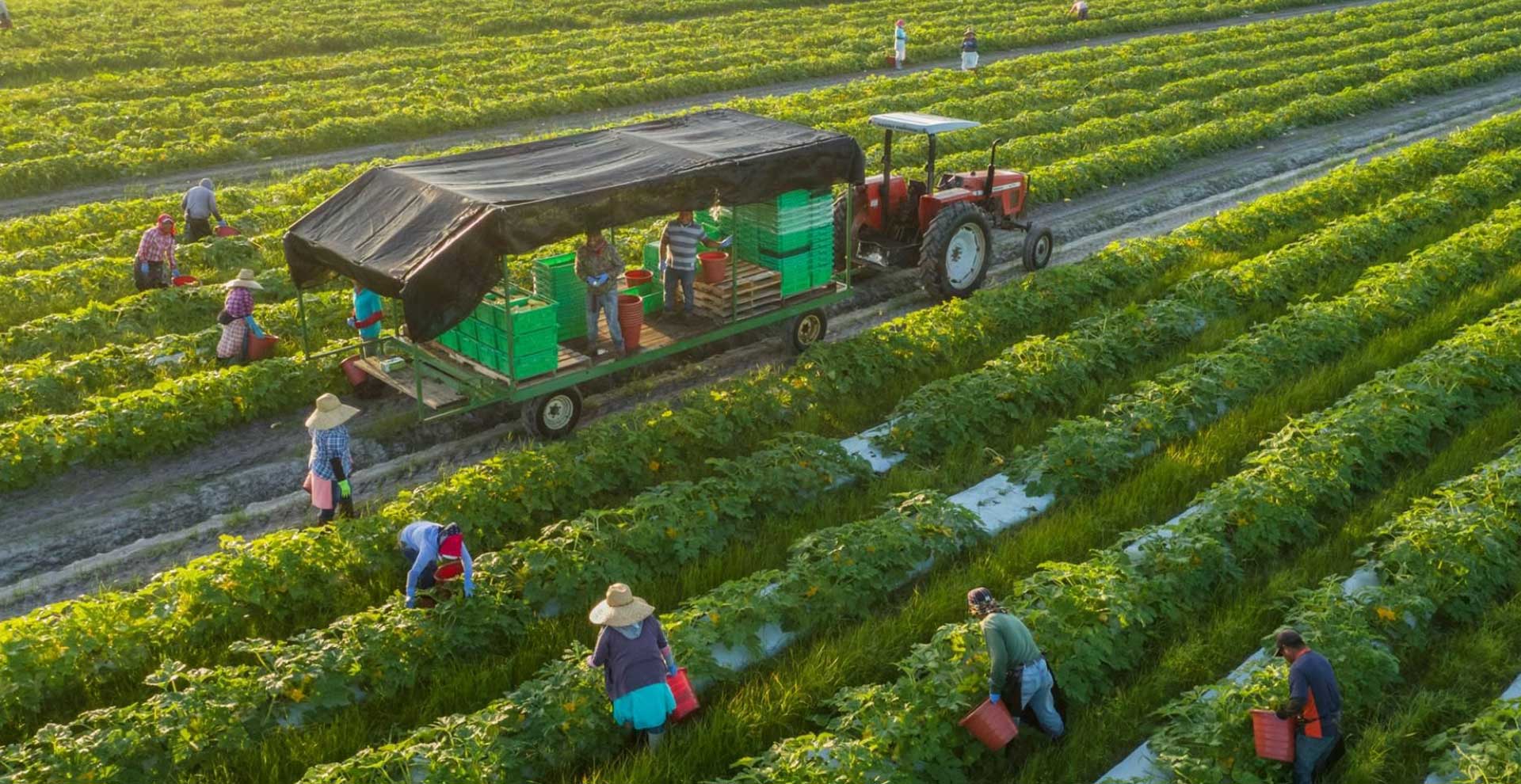
Tidak ada waktu yang lebih baik dari sekarang untuk memulai perubahan, bergabunglah dengan komunitas perdagangan terpercaya hanya di PasarMIKRO!
